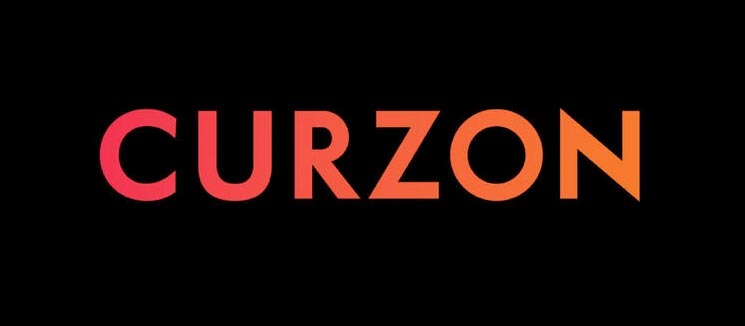Vue Cinemas In The UK Childishly Threatens To Boycott BAFTAs For Rewarding 'Roma'
Vue Cinemas is one of the biggest movie theater chains in the United Kingdom, and they are not happy with the BAFTAs, the British equivalent of the Oscars. The British organization gave Alfonso Cuarón's movie Roma plenty of recognition, including the coveted award for Best Film. But since it's a Netflix movie, Vue Cinemas is crying foul. In fact, they're so mad about the situation that they're threatening to pull support from the BAFTAs if they continue to support the streaming service's endeavors in cinema. Cue the tiniest violin.Tim Richards, a chief executive at Vue Cinemas, penned an open letter to BAFTA Chief Executive Amanda Berry criticizing the organization for rewarding Roma with four awards at their recent ceremony (see the full list of 2019 BAFTA winners here).
In the letter (via Deadline), Richards calls Roma a "made for TV movie" but somehow still claims that he has a "huge amount of respect" for director Alfonso Cuarón. He goes on to explain that his major gripe with BAFTA in giving Roma the awards for Best Film, Director, Cinematography and Film Not in the English Language is that it seems to go against BAFTA's own rules. In order to qualify for the BAFTAs, "the British public should have had an opportunity to see entered films and films should therefore have been screened and marketed to a public paying UK audience."
What this really comes down to is Vue Cinemas don't like that Netflix has reduced the window for theatrical release before the film is made available on their streaming service. Their position is the same as American theater chains such as AMC Theatres, Regal Cinemas and Cinemark. They believe it's hurting their bottom line to screen movies in theaters that will be made available on Netflix in a much shorter amount of time than other studio-released films. For their part, BAFTA responded to the letter quite matter-of-factly:
"The Film Committee is satisfied that every film in contention for this year's Film Awards met the criteria for entry, which includes a meaningful UK theatrical release. BAFTA encourages public engagement with cinema-going and aims to be inclusive and supportive of the UK filmmaking sector as a whole. We review our criteria annually in close consultation with the industry to ensure that our eligibility criteria remain fit for purpose."
Richards is being pretty childish about this whole situation. In case you need any further evidence of that, Philip Knatchbull, CEO of leading arthouse exhibitor and distributor Curzon in the United Kingdom, penned an open letter of his own (via Deadline) responding to Vue Cinemas.
In the latter, Knatchbull writes:
"In 2018 we saw a growing number of customers engaging with Curzon Home Cinema and attending our cinemas, so it is not evident that streaming has to be in conflict with cinema-going. We have actively encouraged all rights holders, including Netflix, to see the value of the theatrical experience but likewise call on the entire exhibition sector to put customer choice to the forefront, and end the strict limitations of the current 16-week theatrical window"
Finally, someone in the movie theater business says the truth. The real problem that theater chains have is that they're operating facilities that do not match the standards customers have for the prices they're paying at these theaters. It's not the shortened theatrical window that's the problem, it's the theaters themselves. Movie theater chains are just trying to find an easy scapegoat to justify their failing business practices, and it has to stop.
Below, you can read both letters from Vue Cinemas and Curzon in their entirety:
Vue Cinemas Open Letter to BAFTA
Dear Amanda,
As a long term member and former Council Member of BAFTA, I am writing to express my concern at the decision-making behind this year's EE British Academy Film Awards.
As one of the largest cinema operators in Europe, Vue is a passionate believer in the role of cinema in the industry, its unique abilities to bring communities together in a shared entertainment experience and the role it plays for audiences and filmmakers in providing the best theatrical experience possible. We believe that BAFTA has not lived up to its usual high standards this year in choosing to endorse and promote a "made for TV" film that audiences were unable to see on a big screen.
This is personally difficult because Alfonso Cuarón is an incredible filmmaker for whom I have a huge amount of respect. However, the four awards given to Roma – Best Film, Director, Cinematography and Film Not in the English Language do not adhere to BAFTA's rules requiring "that the British public should have had an opportunity to see entered films and films should therefore have been screened and marketed to a public paying UK audience".
BAFTA's rules also state that "Films should not be screened purely to qualify them for these awards, and the film committee may not accept entry if they do not deem the theatrical release to be meaningful". It is clear that Netflix made at best a token effort to screen Roma, screening it to less than 1% of the UK market solely because it wanted an award. How could BAFTA let this happen?
Netflix is well known for its tactics and secrecy and its release strategy for Roma in the UK was no exception. It is still unclear whether Roma was screened on more than the 13 Curzon Cinema screens representing less than 0.5% of the cinema market and for one week at the Filmhouse Edinburgh. Not knowing how many people have seen Roma, where it was screened or what level of box office it delivered is another example of how Netflix acts outside the industry whilst at the same time it craves its acceptance.
All major British cinema exhibitors abide by the 'Theatrical Window' that ensures cinema audiences can enjoy the launch and screening of first run feature films before they are released on small screen formats like streaming and subscription services on iPads and televisions. This practice has successfully served all sides of our industry for many decades and is one of the core differentiators that makes cinema unique.
Roma may very well have attracted a much larger audience, without affecting Netflix's subscription base, if it had been released as a first run theatrical film. Unfortunately, we will never know.
Steven Spielberg even stated "Once you commit to a television format, you're a TV movie. You certainly, if it's a good show, deserve an Emmy, but not an Oscar. I don't believe films that are just given token qualifications in a couple of theaters for less than a week should qualify for the Academy Award nomination."
Appealing to industry award panels and Film Festival organisers is an essential element of the Netflix business plan to attract talent and credibility. Imagine the message that could have been sent by BAFTA if Netflix were forced to abide by the rules underlining the principle that a film must have a full theatrical release, otherwise it's just a 'made-for-TV' production.
On behalf of Vue International, it saddens me that the Academy has chosen to ignore the opportunity to defend this principle. I regret that in future we will not be able to support the BAFTA awards as we usually do unless the Academy board reconsiders its eligibility criteria. BAFTA, the US Academy of Motion Picture Arts and Sciences and major film festivals should continue to differentiate between a "made for TV" movie and a first run feature film with a full theatrical release, as they have for the last 100 years.
Yours sincerely,
J. Timothy Richards
Founder & CEO
Curzon Open Letter to Vue Cinemas
Given Vue CEO Tim Richards' recent letter to BAFTA, which implicates Curzon, I feel obliged to clarify our position regarding the current cinema vs. streaming debate.
At Curzon, we have have been releasing our own films simultaneously in cinemas and on our own streaming service Curzon Home Cinema for almost a decade (a period which has seen us release 11 BAFTA winners). It was a strategy born partly from the unreliable and fragmentary support we were receiving from some of the larger cinema operators. By releasing simultaneously on Curzon Home Cinema we can ensure that everyone in the country has access to our films whatever the commercial imperatives of multiplex bookers.
We are confident in the value of the theatrical experience, which is why we are not afraid to offer our customers the choice of when, where and how to watch our films. Some customers without access to a cinema, or for a multitude of personal reasons, choose to watch at home. Plenty still love watching films on the big screen. Most, of course, do both but it is our contention that everyone prefers to watch films when they are part of the national conversation, not months later.
In 2018 we saw a growing number of customers engaging with Curzon Home Cinema and attending our cinemas, so it is not evident that streaming has to be in conflict with cinema-going. We have been opening new cinemas at a rate of two per year and will continue to do so for the foreseeable future. We believe in cinema.
The theatrical window may well serve 'tentpole' studio films but many smaller independent and foreign language films need a bespoke approach. ROMA & COLD WAR have played successfully at Curzon and a number of other independent venues whilst also being available on Netflix and Curzon Home Cinema respectively. There is room for more flexibility.
We have actively encouraged all rights holders, including Netflix, to see the value of the theatrical experience but likewise call on the entire exhibition sector to put customer choice to the forefront, and end the strict limitations of the current 16-week theatrical window.
As always all Curzon films remain available to be booked by Vue or any other cinema operator. Our forthcoming tiles; Sebastian Lelio's GLORIA BELL, Paolo Sorrentino's LORO and Joanna Hogg's THE SOUVENIR, were all made to be seen in a cinema. We invite all the large cinema chains to open a dialogue with us to resolve the current impasse so they too can choose to show these films in their cinemas and provide their customers with the choice they are looking for.


